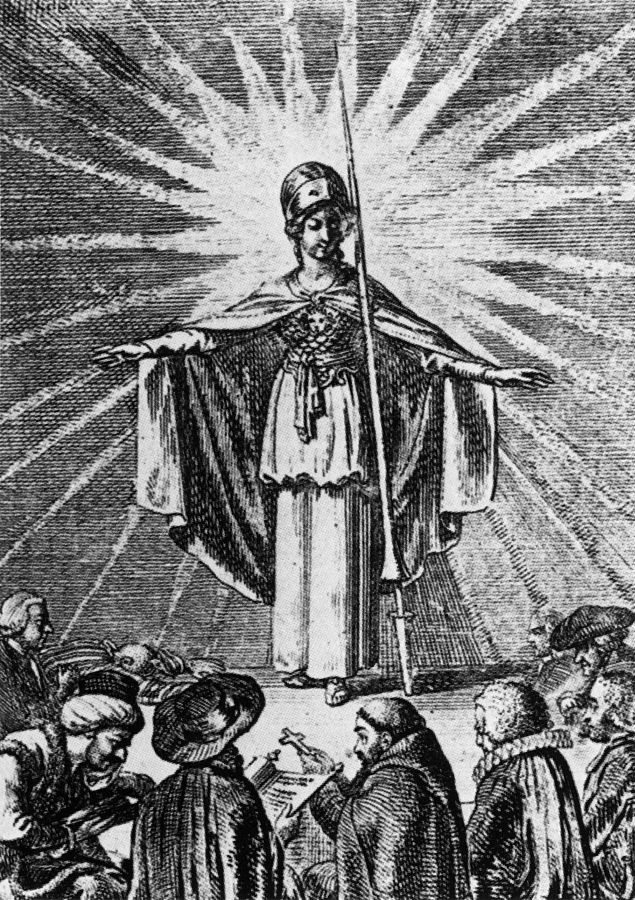Crime – Can we Do Something about it?
Article By Gilad Sommer
There is a plague that is wreaking havoc in our cities these days, causing distress, pain, and fear. I’m not talking about COVID, but about the pestilence of crime. In the United States it has been a political issue for big city mayors for many decades, much thought and money has been thrown at the problem, and yet the solution does not seem to be any closer. This is a problem we have not yet found a vaccine for, despite the seeming efforts made in that direction.
Perhaps the solution is not to invent some new method or reform, but rather in applying what we already know? When we cannot find solutions in the present, it is sometimes helpful to consult the experience of humanity, epitomized by the sages of history. The ideas of the Confucian philosopher, Mencius, for example, have a very interesting relevance to this topic.
Mencius (or Mengzi) was a Chinese philosopher who lived in the 4th century BCE, at the end of the Zhou dynasty, an era historians call “the Warring States period”. This period, as may be surmised by its name, was a period of constant conflicts between the different states that composed the Zhou kingdom. Those in power lived in constant fear of assassination and usurpation, and the common people lived under the constant burden of taxes, banditry, and warfare.
Mencius saw himself as a follower of Confucius, the great sage who lived a hundred years previously, saying: “Ever since man came into this world, there has never been one greater than Confucius” (2A2). He developed further an idea Confucius taught much about – benevolence or humanness (ren 仁).
Despite the strife he must have witnessed throughout his life, Mencius believed that human beings are innately benevolent, and that within them there is a sprout of benevolence that needs to be nourished and extended so that it will grow into full fruition.
But if we are benevolent in nature, why do people resort to crime, according to Mencius?
It is of course difficult to generalize about crime, since there are different types of crime, and different types of criminals. Assuming, however, that we are discussing commonsense laws that aim to preserve the harmony of society (and not laws used as tools of repression), there are certain commonalities when it comes to the origins of crime.
First of all, people have basic needs – quality food, safe shelter, a social net, and so on. Most people will not have the inner means to overcome harsh circumstances of poverty and ignorance, and will turn to crime in situations where their survival is at stake. According to Mencius, if a person resorts to crime for these reasons, it is not entirely the criminal’s fault but the fault of those in charge who lack benevolence and do not comply with their duties.
“When people die, you simply say, “It is none of my doing.” It is the fault of the harvest. In what way is that different from killing a man by running him through, while saying all the time, “It is none of my doing. It is the fault of the weapon.” Is there any difference in killing him with a knife and killing him with misrule?” (1B 12)
Of course, there will always be individuals who can grow and prosper regardless of their circumstances. These are exceptional human beings who are like stubborn desert plants that can grow anywhere. Reality unfortunately demonstrates that these people are a minority. Most people are like common plants which require a resource-rich earth, balanced temperatures, and a supply of nutrients and water.
Nevertheless, even if one’s physical needs are satisfied, this is not enough. According to Mencius – “The Way of the people is this: if they are full of food, have warm clothes, and live in comfort but are without instruction, then they come close to being animals” (3A4).
For Mencius, human beings differ from animals since they have needs that transcend their biological cravings. In first world countries, for example, most people do not lack physical nourishment, but many lack emotional, intellectual, mental, and moral nourishment.
Education, however, is not just about imparting knowledge. “To educate a person in the mind but not in morals is to educate a menace to society”, as Theodore Roosevelt said. Education is also to teach self-mastery, coexistence, social harmony.
If the people have what they need but are uneducated, they will still resort to crime – out of boredom, laziness, or greed. That is the case of the “porch bandits”, who steal packages from porches.
If the people are only intellectually informed and not morally formed, crime will not end, but just become more sophisticated. That is the case of so-called white-collar crime.
People are not stealing packages or money laundering for the sake of survival, they are stealing because they lack self-control, and they are poisoned by greed.
While Mencius puts a lot of responsibility on society, he also speaks about the individual effort required by every citizen, and especially by those who have the responsibility of leading. These must make a constant effort of self-improvement and nourish the ‘sprouts’ of virtue within themselves.
Following the teachings of Confucius, Mencius sees the leader’s example of virtuous living as crucial, and therefore, not anyone could or should be a leader. Real leaders will bring more social harmony, greater striving by the people, and as a side effect, less crime.
Mencius moreover sees the ruler as a servant of the people. Governing is then an act of sacrifice, of putting one’s personal self aside in order to serve society.
“Of the first importance are the people, next comes the good of land and grains, and of the least importance is the ruler.” (Mencius, 7B:14)
Finally, the moral authority of the leader comes from being a supreme example of what they ask of the people. After all, how can leaders ask people to act better than they do?
In some way, Mencius is not telling us anything that we do not already know. While we cannot treat crime simplistically, there is no doubt that if all people would have their basic needs met and received quality education based on lasting human values, levels of crime will decline significantly.
The real question is not why there is crime, but why are these things not provided to all people when we have the means to do so…
What would it take to make it so?
Also, are the people in charge providing a moral example?
If not, what would it take to make it so?
Perhaps it is not that we don’t have a vaccine for crime, it is that we do not want to use it…
Image Credits: By Kat Wilcox | Wikimedia Commons | CC0 1.0
The entity posting this article assumes the responsibility that images used in this article have the requisite permissionsImage References
By Kat Wilcox | Wikimedia Commons | CC0 1.0
Permissions required for the publishing of this article have been obtained




What do you think?